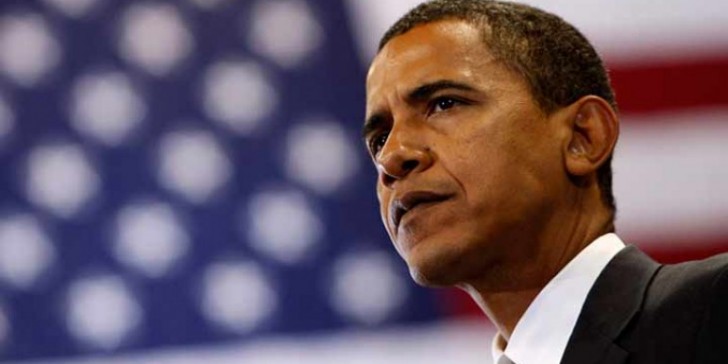
Obama: His deeds don’t match his words
NEW YORK — Will the real Barack Obama please stand up!
That’s the request that — as if participating in the old TV program “To Tell the Truth” — many people would like to ask the President.
The reason? The President’s exasperating habit of contradicting his words with his actions, a pattern of behavior capable of disconcerting the keenest observer.
A clear example is his attitude toward immigration. On one hand, we have compassionate words such as these:
“When the immigrations raids by ICE [Immigration and Customs Enforcement] terrorize communities, when breast-feeding mothers are separated from their babies, when the children come home from school and don’t find their parents, when people are detained without access to legal advice, when all this is happening, the system is simply not working and we need to change it,” then-candidate Barack Obama told the National Council of La Raza in 2008.

On the other hand we have, six years later, the reality of his actions: 2 million deportees, most of them heads of family, workers, good people.
That figure, a new record, will grow considerably if Obama, as he intends, changes the rules of the game to swiftly repatriate the largest number possible of Central American children who have crossed the border unaccompanied. This, despite the fact that the children would be returned to the misery and violence from which they escaped, almost miraculously, to save their lives.
Will the real Barack Obama please stand up!
Cuba is another example capable of confusing the sharpest observer.
On one hand, we have the President’s words: “We have to update our policy. Don’t forget that when Castro came to power I had just been born,” he said in Miami in November 2013.
One month later, in a gesture that went around the world, he shook hands with Cuban President Raúl Castro during a memorial to the recently deceased Nelson Mandela in South Africa. The speculations on the significance of the unexpected handshake were not long in coming.
“It was a simple gesture, but I don’t think it happened by chance,” I was told from Havana at the time by writer Jesús Arboleya, reflecting the thoughts of many people, both in Cuba and outside.

More recently, after Uruguayan President José Mujica met in Washington with Obama on May 12, the news spread that Obama had communicated to the South American leader that he intended to reach an accord with Cuba.
At the time, many believed that a positive change was near in the relations between the two countries, separated by hostility for more than half a century.
“I have two years left. This is the moment,” Obama reportedly told Mujica.
However, once again, what Obama says resembles little what he does. Just look at the unprecedented recrudescence of Washington’s economic persecution against Cuba.
The most notorious example is the fine of $8.97 billion imposed on June 30 against the French bank Paribas, the largest fine ever imposed against any financial institution for violating the anachronistic embargo against Cuba and other sanctions against Sudan and Iran.
In June 2013, Italy’s second largest bank, Intesa San Paolo, had to pay $3 million; in 2013, the Dutch bank ING Bank NV agreed to pay $619 million. Other banks in Sweden and Britain have also paid hundreds of millions of dollars in fines related to transactions with Cuba.
Havana, quite rightly, blames the universally condemned U.S. embargo for the sanctions, as well as for the gratuitous inclusion of Cuba on the list of sponsor countries of terrorism, drawn up in Washington and maintained by Obama.
Obama “basically continues to execute the policies of his predecessors. He continues to apply pressure to the Cuban economy, with emphasis on the international financial transactions,” says Phil Peters, president of the Cuba Research Center, in Alexandria, Va.
No doubt, a strange way to improve relations.
Will the real Barack Obama ever stand up?

